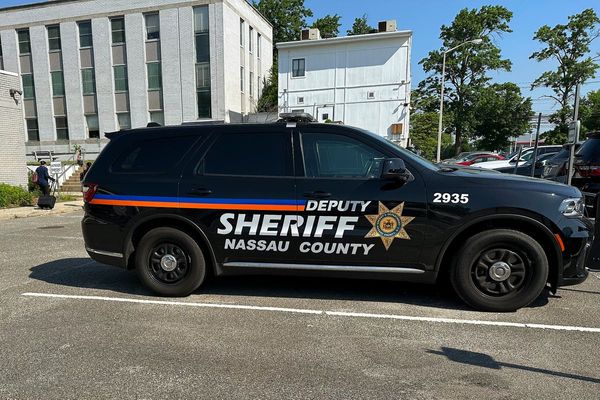
The British Gas bill came out of the blue. It demanded £10,529 for a month’s worth of electricity and required payment within 10 days. Jessica* rents a modest flat in London and is a customer of E.ON Next. Her E.ON bill for the same month was £50.60.
“We moved into the flat two years ago when it was supplied by EDF,” she said. “We switched to E.ON six months later and have been paying them by direct debit ever since. We have never been customers of British Gas.”
During repeated calls to British Gas, Jessica says she was told that her electricity supply was registered to British Gas and that the bill, charged at a business tariff, was legitimate.
“I showed them photographic evidence that we are not with British Gas, but they said that we need to pay the bill unless we somehow obtain proof that the meter they are charging us for doesn’t exist.”
British Gas told the Observer that a business account it supplies is registered to Jessica’s address at Flat 3 on the industry database. The meter supplied by E.ON and paid for by Jessica is, it claimed, registered to Flat 5 – a number that does not exist in the building. The company claims it had been sending previous bills to the wrong address, which is why Jessica first heard of the alleged debt in January.
Jessica is one of countless householders to receive shock bills for a stranger’s energy because of errors on the industry database that matches energy supplies with addresses.
Each property has a unique reference number that identifies the postal location of each gas and electricity supply, so that, in theory, energy companies know which address they are supplying. However, customers can’t check the number for themselves because it only appears on their bills, not on their actual meter. This means that some householders are inadvertently paying the wrong supplier for their energy.
Residents in recently built or converted blocks of flats are most likely to be affected by meter mix-ups because meter point reference numbers may be registered before the new postal addresses have been confirmed.
Sue Lowndes found herself stuck in limbo between four suppliers after moving into a newly converted flat in 2020. For two years, she paid British Gas for her electricity, then bills to her address, in a neighbour’s name, began arriving from Scottish Power.
“British Gas said not to worry as I was paying my bills by direct debit and Scottish Power said there was a mix-up which they would resolve,” she said. “The bills continued to arrive, then last December I received a letter from British Gas saying that they were sorry I was leaving them and cancelling my direct debit.”
Lowndes was informed that because of a meter reference mix-up, she had been paying British Gas for a neighbour’s supply. Bills then began arriving from British Gas addressed to a stranger, while Scottish Power continued to send demands to her flat in the name of her neighbour, who had since moved away.
The mystery deepened when a cheque for a £2,035.89 “refund” arrived from British Gas. Lowndes was then told that her flat was, in fact, registered with E.ON and that she had never been a British Gas customer.
A four-month investigation by the Observer discovered that at least three flats in Lowndes’s block had been registered against the wrong supply, meaning that residents were being charged for their neighbours’ electricity. British Gas had charged Lowndes for the supply to a neighbouring flat for 18 months. The cheque was to refund these payments.
So tangled is the database that even the energy companies couldn’t work out who Lowndes’s supplier was. Scottish Power initially claimed that it had been providing her energy, but had been sending bills to a different flat. It then transpired that she had been a British Gas customer after all, but her supply had erroneously been transferred to Ovo, which also billed the wrong address.
All the while, four-figure bills in strangers’ names continued to arrive from Scottish Power. The latter claimed that the problems began when E.ON installed the flats’ electricity meters after the block was converted and registered Lowndes’s meter to the wrong address on the central database. E.ON declined to comment. Lowndes has now been transferred back to British Gas and is awaiting an updated bill.
Under back-billing rules introduced by energy regulator Ofgem, companies are not allowed to charge customers retrospectively for more than 12 months of gas and electricity if they failed to issue correct bills at the time. Lowndes will only therefore be liable for energy supplied over the past year.
Jessica’s battle is still continuing. British Gas requires the management company to confirm which meter is supplying her flat before it will cancel the bill and amend the database. Three months on, the management company has failed to do so.
Customers who suspect that they are being billed incorrectly can take unresolved complaints to the Energy Ombudsman, which told the Observer that billing, including meter mismatches, is the most common category of complaint it receives.
Ofgem said that under supplier licensing conditions, energy companies must take all reasonable steps to reflect accurate meter readings in bills and that it takes action if data received from suppliers and the ombudsman suggests there are significant issues affecting customers.

The key numbers you need to know
Energy meter numbers are reference numbers that identify a household’s gas and electricity supply on a national database. The meter point administration number (MPAN) refers to the electricity and the meter point reference number (MPRN) refers to gas. As they match the energy supply to an address, they only change if you move home. Energy companies will need these numbers to confirm your location if you are switching supplier or moving home. They can be found on utilities bills, but not on your meter.
If you don’t have a bill, contact your supplier to ask for the numbers. If you don’t know who your supplier is, you can contact the relevant network operator to find out.
A meter serial number (MSN) identifies the meter rather than the address. They are printed on the meter itself, as well as bills. Check the MSN on the bills matches the MSN on the meter to ensure you are not being billed for someone else’s energy.
However, this may not resolve the problem because if the meter has been registered to the wrong address, it won’t stop you being billed for someone else’s supply. To check which address it is registered to, you need the MPAN.
If a billing dispute is not resolved within eight weeks, you can complain to the Energy Ombudsman.
* Name has been changed







